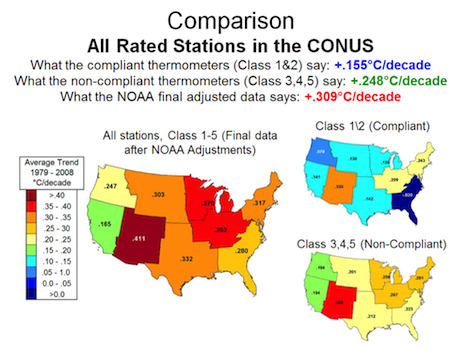Another reason might be that the concepts of ‘global’ and ‘sustainability’ are at best nebulous. To what extent are ‘global problems’ really global? And to what extent can making and doing things ‘sustainably’ really address problems such as poverty and inequality? Poverty is not, in fact, a problem of too much exploitation of natural resources, but too little. And poverty is not a global problem, but a categorically local one, in which a population is isolated from the rest of the world.
We can only account for poverty and inequality in the terms preferred by environmentalists if we accept the limits-to-growth thesis and the zero-sum game that flows from it. In other words, that there are limits on what we can take from the planet and we can only solve poverty if we divide those limited resources more equitably. Such an argument for reducing and redistributing resources has the reactionary consequence of displacing the argument for creating more wealth.
But to date, the arguments that there exist limits to growth, an optimum relationship between people and the planet, and that industrial society is ‘unsustainable’, have not found support in reality. The neo-Malthusians’ predictions in the Sixties and Seventies were contradicted by growth in population and wealth. And now there is a growing recognition that the phenomenon most emphasised by environmentalists — climate change — has been overstated. [. . .]
‘Sustainability’ is not about delivering ‘what we want’ at all but, on the contrary, mediating our desires, both material and political. Accordingly, the object of the Rio meeting is not as much about finding a ‘sustainable’ relationship between humanity and the natural world as it is about finding a secure basis for the political establishment. The agenda for the Rio +20 conference is the discussion of ‘decent jobs, energy, sustainable cities, food security and sustainable agriculture, water, oceans and disaster readiness’. Again, noble aims, perhaps. But is the provision of life’s essentials, and the creation of opportunities for jobs and the design of cities, really a job for special forms of politics and supranational organisations?
The idea that there are too many people, or that the natural world is so fragile that these things are too difficult for normal, democratic politics to deliver, flies in the face of facts. It would be easier to take environmentalists and the UN’s environmental programmes more seriously if millions of people were marching under banners calling for ‘lower living standards’ and ‘less democracy’. Instead, just a tiny elite speaks for the sustainability agenda, and only a small section of that elite is allowed to debate what it even means to be ‘sustainable’. We are being asked to take at face value their claims to be serving the ‘common good’. But there is no difference between the constitutions of benevolent dictatorships and tyrannies.
Sustainability is a fickle concept. And its proponents are promiscuous with scientific evidence and ignorant of the context and the development of the sustainability agenda, believing it to be simply a matter of ‘science’ rather than politics. The truth of ‘sustainability’, and the meeting at Rio next month, is that it is not our relationship with the natural world that it wishes to control, but human desires, autonomy and sovereignty. That is why, in 1993, the Club of Rome published its report, The First Global Revolution, written by the club’s founder and president, Alexander King and Bertrand Schneider. The authors determined that, in order to overcome political failures, it was necessary to locate ‘a common enemy against whom we can unite’. But in fighting this enemy — ‘global warming, water shortages, famine and the like’ — the authors warned that we must not ‘mistake symptoms for causes’. ‘All these dangers are caused by human intervention in natural processes, and it is only through changed attitudes and behaviour that they can be overcome. The real enemy then is humanity itself.’




